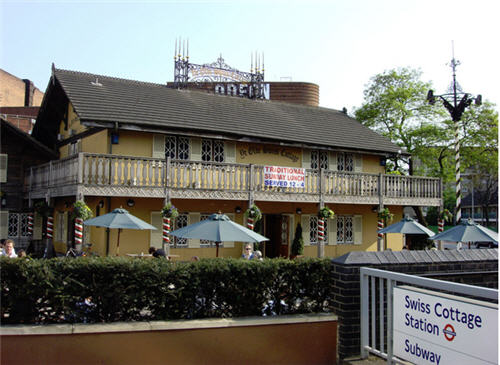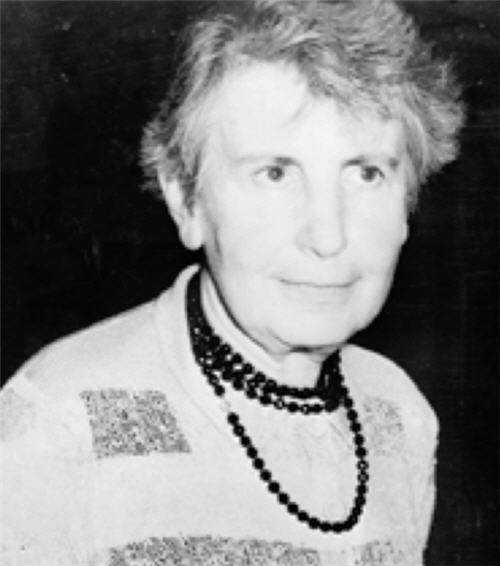Tightening the Belt

(Swiss Cottage Tube Stop, Jubilee Line,London. Photo London Transit System.)
Gentle Readers: this account was penned in 2010, before anyone could imagine what was coming. At least that is true for me. This interview attempted to deal with the immediate aftermath of WWII, and Mac’s duties in Washington, his marraige to his beloved Billie, and the relocation to the Headquarters Staff of U.S. Navy Europe, which was then known as CINCNELM. Civilians would have known it as Commander in Chief U.S. Naval Forces, Eastern Atlantic and Mediterranean.
If I was not taking notes, this would have been an ordinary late afternoon on a work-day, seated at the bar at Willow, drinking. Instead, we were continuing the oral history interview with Mac, which lent the enterprise a certain high-minded quality. Liz-with-an-S, the delightful chestnut-haired day drinker’s afternoon bartender approved, and was solicitous. When the shift changed and Peter and Big Jim arrived to service the industrial-strength crowd, we had ventured a little off track.
“So,” I said, taking a sip of my refreshing white win, “The draft proposal of the President’s bipartisan commission on reducing the federal debt calls for deep cuts in domestic and military spending, starting in 2012. That is going to screw the business climate for contractors.
“I presume the assumption is that the current economic crisis and the wars will be over, and enable us to do even more irresponsible things in 2011.”
“Like extend the Bush tax cuts, which would let me try to keep paying down the hit I took on real estate in the bubble. I have never missed a payment but I can’t qualify to refinance because the loan-to-value ratio has fallen into the third floor.”
“Reform like the report recommends won’t happen,” said Mac, raising his amber glass of Bell’s. “It is a draft. A trial balloon to see what gets people all riled up. We have been talking about fixing the tax code for a generation and it just gets more convoluted. From what I read, the changes would erase nearly $4 trillion from projected deficits through 2020. I will be 101 that year.”
“I heard the plan is going to reduce Social Security benefits to all of us Boomers, though the people that don’t pay taxes now- the poor ones, not the rich ones- will get higher benefits. They also propose eliminating the cap on the FICA deductions from our paychecks. Bastards. That means whatever the benefits I get back are just about what they take away to begin with.”
“It is all in the art of the budget. They are going to promise you that with some current sacrifice, Social Security will be solvent for at least the next 75 years.”
“They never seem to do the sacrifice,” I said. “It is always us. You will be 176 then,” I said, making a calculation on the napkin. “You have been drawing Social Security for 26 years.”
“Pays to have your timing right,” said Mac with satisfaction. “But you get what you pay for.”
The notes, as I review them this morning, begin in an organized enough fashion. We plowed a little familiar ground to get calibrated. I was prepared to listen to 1953, and settled into the rhythm of the long ago.
Mac wed Billie in 1948, an excellent year for new beginnings, and elected to stay in the Navy. After a period at the Pentagon writing the Political Cable, he was transferred to the European Navy headquarters, CINCNELM, which had taken over Ike’s old SHAEF headquarters on North Audley Street near the Embassy in London.
I had intended to discuss the great tides in international affairs that were going on then; the Greek Crisis, the impact of the Marshall plan, the strange events in Iran.
Instead we got off on beds, though not literally, of course.
Mac and Billie did not take much to England except their beds and the 1948 Mercury sedan. It had been a bad war for the British, and they accepted a lot of things we wouldn’t as a matter of necessity. Rationing was still in effect, though of course the Yanks managed to have their own supplies.

(The house at 18 Maresfield Court, London. The third floor flat must have been tiny! Image Google Earth).
For one thing, the British slept on appalling mattresses, or at least that was the word in Washington before they decamped for London, and the beds were shipped to a row-house located at 18 Maresfield Gardens, near the Swiss Cottage Tube stop.
“The station was opened just as the war was starting in late 1939 on a new section of deep-level tunnels constructed between Baker Street and Finchley Road. They used them as shelters during the Blitz. It is named for a nearby pub, an old one that dates from before the battle of Waterloo. It was originally called The Swiss Tavern, and later renamed Swiss Cottage. The pub is still there, or at least it was in 1950.”
I made a note to check, and did this morning. It is. “What sort of place did you live in,” I asked, spilling a little wine on my note-napkin, making the ink bleed.
“It was a nice place. It had been an imposing three-story home that had been divided into three flats. We had the ground floor, with the garden, and with strong sanitary American mattresses beneath us, life was pretty good.” He smiled at the memory.
“What was interesting was that Sigmund Freud, the pioneer psychotherapist, had lived just two doors down the row. He was dead, of course, the cancer having taken him in September of 1939, the just a couple months before the tube station opened. He had to get out of Austria with the growing madness there, and lived the last year of his life in the relative safety of London.”

(Ana Freud, Mac and Billie’s neighbor in Swiss Cottage. Photo Bettman Archives.)
“The house survived the Blitz, and his daughter Ana lived there most of the rest of her life. The house is a museum now, but in my time, it was just Ana’s residence, where she carried out her life’s work refining the principles of her father. “
“Freud didn’t exactly invent the idea of the conscious versus unconscious mind,” I said, working my slow way into unconsciousness, “but he certainly was responsible for making it popular. He also famously asked the question: “What do women want?”
“He never got a satisfactory answer,” said Mac. “But Ana had some ideas about it, and so did Billie.”
In a roundabout fashion we had got onto the topic of bagpipes, which means one of my napkins might have gone missing. We were moving backwards in time, or maybe I jammed the notes out of order in my suit-jacket. The pipes, and the piping, were funded in Mac’s home state of Iowa through the Department of War. The mechanics of playing the bagpipes involved both the conscious and unconscious minds, which had to be trained to work in concert.
Mac said you have to squeeze the bag with your left arm while blowing into the pipe and fingering the chanter. I thought that it sounded a lot like trying to strangle a cat while getting it to purr, but that in turn, was tied to life on a farm in Iowa, in the Great Depression.
We had jumped right across the war and into a time when the banks were closed, and there was no money at all.
“Imagine an America without cash!” said Mac. “That is a “Black Swan,” even for you! Everything was done in barter, vegetables and meat for dental services, professionals and farmers alike getting by as best they could.”
That was where the pipes came in, since Mac played for three years in the Drum and Bugle Corps at the University of Iowa before he had to drop it to assume the duties of City Editor at the Daily Iowan, the campus newspaper. He might have been a reporter, if the world had not lost its senses to the Monsters.
There was another glass of wine, and a Bell’s IPA in there somewhere, though my notes are not clear as to the timing.
What is abundantly clear is Mac’s recollection of change. His first president was Herbert Hoover, who inherited the first three years of the national disaster after the stock market crash in 1929. Those of us that did not live through it tend to see the thirties in scratchy black-and-white, flickering images of marching Germans and indomitable Franklin Roosevelt propped at a podium, easing the crisis with bold new programs like the Civilian Conservation Corps and the Works Progress Administration.
“I was an FDR supporter,” he said. “But I still went down to the depot to watch Mr. Hoover’s campaign train come through, and listen to a speech the president gave in his doomed campaign for reelection in 1932. He didn’t have a prayer then, any more than this bipartisan panel’s recommendations does now. We could save ourselves, but I suspect we won’t.”
“That is the way I feel,” I said, drawing a line under the words “mortgage interest deduction.”
“Hoover was trying his best to turn things around, and he might have succeeded, since all these great economic things are cyclical, and largely beyond the power of any one President to alter. Mr. Roosevelt was selling hope, and change, and that is exactly what people wanted. That is how Obama got elected and why the Republicans took back the House.”
“It is all about the public’s conscious mind,” I said. “But Dr. Freud could tell you a lot about all the seething Id down below. “
Eventually we got to the point where my notes no longer make any particular sense. The bar at Willow was filling up with vibrant pre-weekend noise, and it was time for us to move on.
I walked Mac out to his gold Jaguar sedan, and we made arrangements to meet again next week.
I walked across the street to the office tower where I had to retrieve the Bluesmobile from the garage under my office and re-enter the world of now.
The prospects were not encouraging. The cleaning crew, all Hispanic, was in the office when I ducked in to grab my briefcase and check the last e-mail of the day. It didn’t make any sense, and I shut down the computer. 2010 looks like it is going to have some challenges. I wondered if I should go home, or just go back to the Willow and get ready.
I think you know that I did the right thing.
Copyright 2016 Vic Socotra
www.vicsocotra.com
